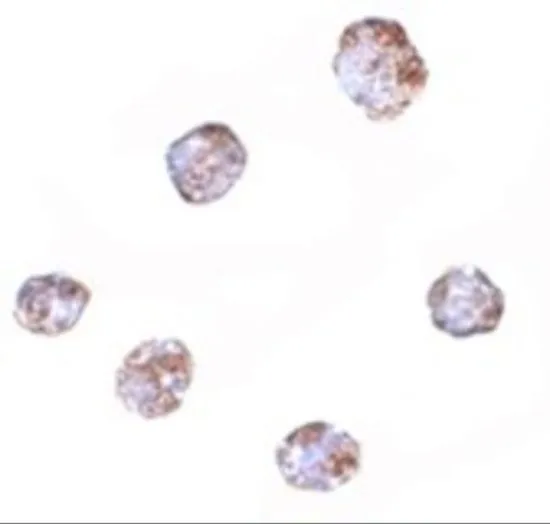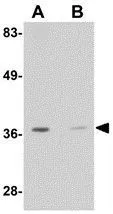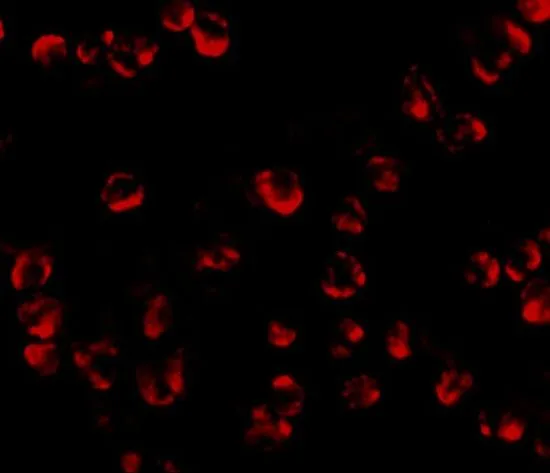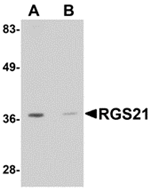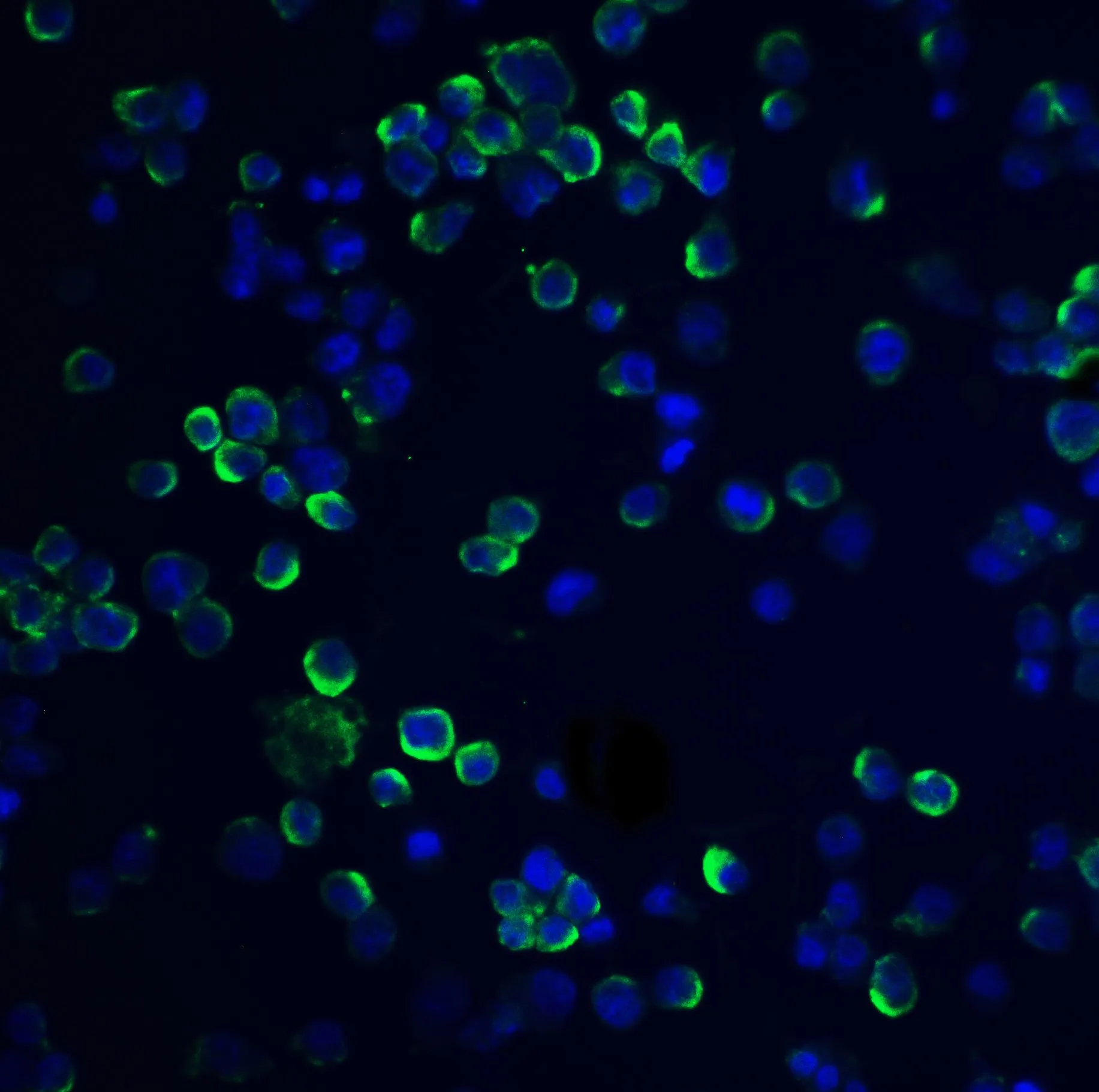
ICC/IF analysis of HepG2 cells using GTX85280 RGS21 antibody. Green : Primary antibody Blue : DAPI Dilution : 20 μg/ml
RGS21 antibody
GTX85280
ApplicationsImmunoFluorescence, Western Blot, ELISA, ImmunoCytoChemistry, ImmunoHistoChemistry, ImmunoHistoChemistry Paraffin
Product group Antibodies
ReactivityHuman
TargetRGS21
Overview
- SupplierGeneTex
- Product NameRGS21 antibody
- Delivery Days Customer9
- Application Supplier NoteWB: 0.5 microg/mL. ICC/IF: 2.5 microg/mL. *Optimal dilutions/concentrations should be determined by the researcher.Not tested in other applications.
- ApplicationsImmunoFluorescence, Western Blot, ELISA, ImmunoCytoChemistry, ImmunoHistoChemistry, ImmunoHistoChemistry Paraffin
- CertificationResearch Use Only
- ClonalityPolyclonal
- Concentration1 mg/ml
- ConjugateUnconjugated
- Gene ID431704
- Target nameRGS21
- Target descriptionregulator of G protein signaling 21
- Target synonymsregulator of G-protein signaling 21, regulator of G-protein signalling 21
- HostRabbit
- IsotypeIgG
- Protein IDQ2M5E4
- Protein NameRegulator of G-protein signaling 21
- Scientific DescriptionRegulator of G-protein signaling (RGS) proteins contain an 120 amino acid conserved domain, termed the RGS domain, that acts as a GTPase-activating protein that acts to reduce the signal transmitted by the receptor-activated G-alpha subunit. RGS21 is a recently identified member of this family that has been reported to be selectively expressed in subpopulations of taste bud cells and co-expressed with bitter and sweet transduction components such as alpha-gusticin, phospholipase Cbeta2, T1R2/T1R3 sweet taste receptors and T2R bitter taste receptors. Other reports indicate that RGS21 is more widely expressed. Binding assays demonstrate that RGS21 binds alpha-gusticin in a conformation-dependent manner and may do the same with T1R receptors, suggesting that RGS21 may play a role in sweet and bitter taste transduction processes.
- ReactivityHuman
- Storage Instruction-20°C or -80°C,2°C to 8°C
- UNSPSC12352203

